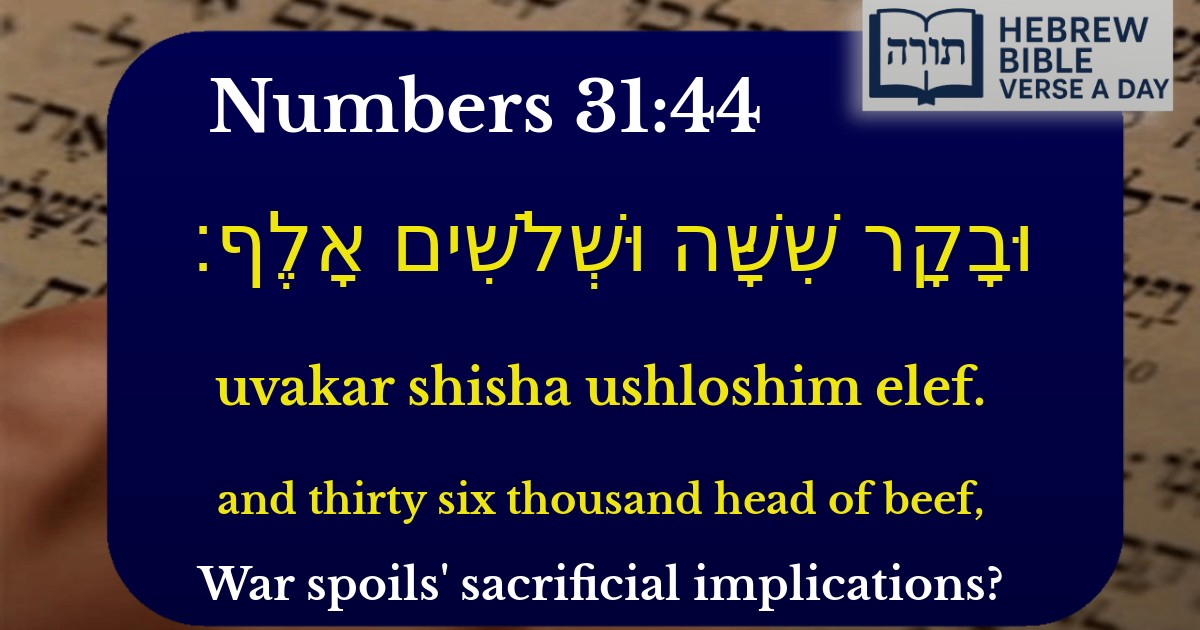Join Our Newsletter To Be Informed When New Videos Are Posted
Join the thousands of fellow Studends who rely on our videos to learn how to read the bible in Hebrew for free!
Hebrew Text
וּבָקָר שִׁשָּׁה וּשְׁלֹשִׁים אָלֶף׃
English Translation
and thirty six thousand head of beef,
Transliteration
Uvakar shisha ushloshim elef.
Hebrew Leining Text
וּבָקָ֕ר שִׁשָּׁ֥ה וּשְׁלֹשִׁ֖ים אָֽלֶף׃
Parasha Commentary
📚 Talmud Citations
This verse is not quoted in the Talmud.


Context in the Torah
The verse "וּבָקָר שִׁשָּׁה וּשְׁלֹשִׁים אָלֶף" (and thirty-six thousand head of beef) appears in Bamidbar (Numbers) 31:38, within the context of the spoils taken from the Midianites after the war commanded by Hashem. This was part of the distribution of the spoils among the Israelites, the Levites, and a portion designated for Hashem.
Rashi's Explanation
Rashi (Bamidbar 31:38) explains that the 36,000 cattle were part of the spoils of war from Midian. He notes that this large number reflects the wealth of Midian, as cattle were a significant part of their possessions. Rashi also connects this to the earlier census in the Torah, emphasizing that the spoils were divided proportionally among the people.
Symbolic and Halachic Significance
Numerological Insight (Gematria)
The number 36 (שִׁשָּׁה וּשְׁלֹשִׁים) is significant in Jewish thought. The Talmud (Sukkah 45b) mentions the concept of the "36 hidden righteous individuals" (ל"ו צדיקים נסתרים) who sustain the world. While this is not a direct correlation, some commentators suggest that the abundance here hints at divine providence in sustaining Klal Yisrael through material means.
Practical Lessons
This verse teaches that even in times of war and material gain, the Torah emphasizes: